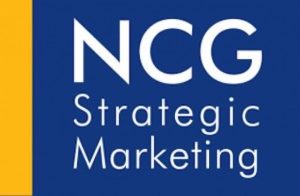For many reasons, I’ve never been much of a friend of Facebook’s. And this sentiment has only increased lately, as news from and about FB in the last few weeks has been a steady stream of evidence as to why one shouldn’t trust the company or its $4-billion, 26-year-old CEO, Mark Zuckerberg. More on that in a moment, and it is troubling. But it’s not a good reason to tar all social media with the same brush.
In fact, it’s quite the opposite. Yes, the red flags being waved about Facebook are a strong signal that those who have been thinking about dipping their toe in the social media pool have all the more reason to leave FB alone for a while. But that’s not necessarily a bad thing, as it means that it’s therefore that much easier to decide to focus your social media efforts elsewhere, and especially on platforms where the rules of the game are clear and not changing every few weeks.
If you think of LinkedIn, Twitter and blogs as they’re most commonly used, it’s as public channels open to the world. And if you use them as such, you’ll never find yourself in a situation increasingly common to users of Facebook, in which you unhappily discover that something you thought you were communicating to a private audience is now accessible to everyone in Google’s search results. With LinkedIn, Twitter and blogs, everyone understands the #1 ground rule: This is for public consumption.
Of course, you could use Facebook in the same professional way that most use LinkedIn and many use Twitter, but that would be a bit like donning your best suit to wear to your kid’s soccer game in the rain. Not only will people look at you funny, but your best efforts to stay professional likely will just send you home in a muddy suit.
The content posted on personal Facebook pages (as opposed to that on FB’s business pages), tends to be – no surprise – a lot more personal than most LinkedIn and Twitter pages. And while that’s the point of Facebook, it’s equally true that for most of its existence, the company has been intentionally blurring and surreptitiously changing the line between what information by or about you is private and what is public. The Electronic Frontier Foundation has a few things to say on the subject:
Since its incorporation just over five years ago, Facebook has undergone a remarkable transformation. When it started, it was a private space for communication with a group of your choice. Soon, it transformed into a platform where much of your information is public by default. Today, it has become a platform where you have no choice but to make certain information public, and this public information may be shared by Facebook with its partner websites and used to target ads.
For more, see the timeline that the EFF has compiled on this point, which it has entitled, “Facebook’s Eroding Privacy Policy.”
In light of all this, it’s perhaps not surprising that more than a few voices are now calling upon their fellow Facebook users to abandon the platform. Gizmodo offers the Top Ten Reasons You Should Quit Facebook and some have declared May 31 to be Quit Facebook Day. Note that even though there are fewer than 14,000 avowed FB quitters on the list (out of more than 400 million users), this does not mean that Facebook and CEO Mark Zuckerberg don’t have a serious problem on their hands. The amount of attention this has been getting – both in the blogosphere and IRL (in real life) – is astounding.
Apparently, there was an “all-hands” meeting at FB HQ last week, and without a doubt the company will soon release a statement to the effect that their top priority has always been the best interests of their users, that they’ve listened closely to everyone’s concerns and they are making some important changes that will ensure that Facebook is even better than before. Don’t be too quick to forgive them. Zuckerberg knows that to monetize his creation to its maximum potential he needs to open up as much of its content as possible to as large an audience as possible. That means your would-be personal info will be out there on the web.
With that in mind, for those of you already on Facebook – and who are not quite ready to delete your accounts – I would strongly recommend reviewing and acting upon Mashable’s very useful post from last week entitled, “5 Essential Facebook Privacy Tips.” And even if fairly recently you set strict parameters as to who could view what information about you on Facebook, you should revisit the issue, as the rules on FB obviously tend to be more fluid than static.
So, what exactly is going on at Facebook? Zuckerberg created a goose that lays billions of golden eggs, and yet he’s acting as if he wants to kill the thing. Is he mad? Maybe just confused. Back in the 1880s, Lord Acton famously commented that while power tends to corrupt, absolute power corrupts absolutely. In the ultimate irony, the co-founder of the most popular social media platform in the world is showing that he really doesn’t understand the greater meaning wrought by Web 2.0: he doesn’t have absolute power – we do.


